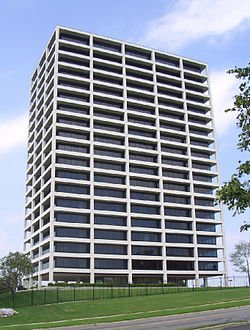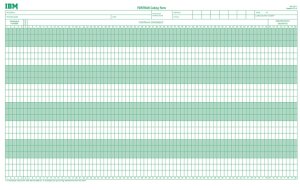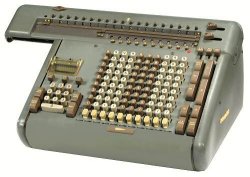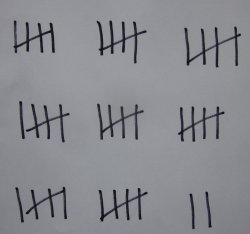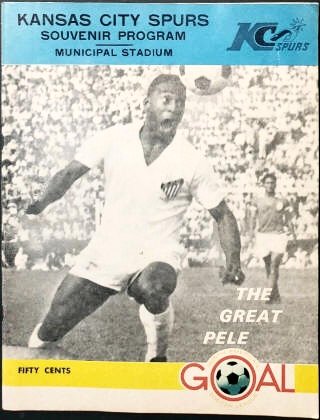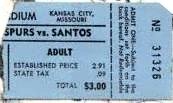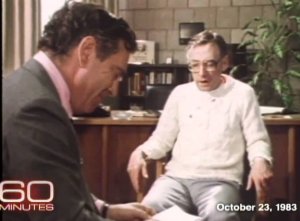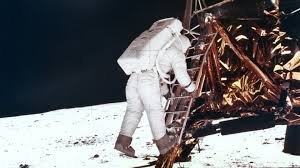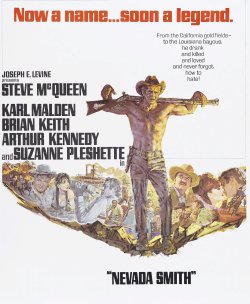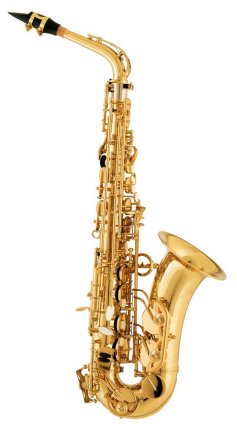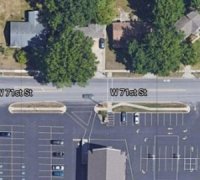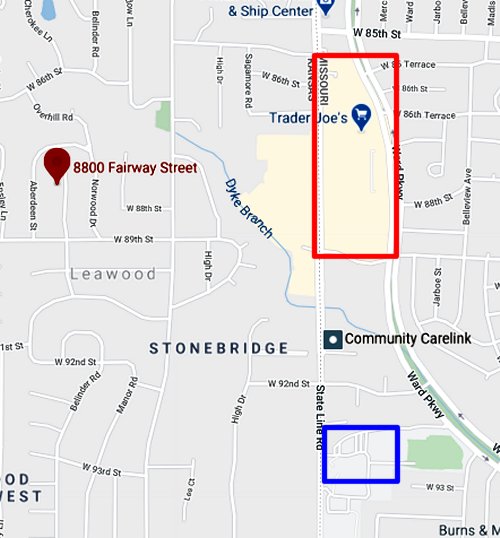My introduction to the insurance workplace. Continue reading
During my undergraduate years I worked all three summers at life insurance companies. I wore a suit every day. My dad had given me some ties that he no longer wore. Thus attired, I never acquired the valuable and character-building experience of flipping burgers or waiting tables.
My dad worked at Business Men’s Assurance (BMA) in Kansas City throughout his entire career. The company had a policy of offering summer jobs to the offspring of its executives who were attending college. My dad certainly did not start at BMA as an executive, but by the time that I was in college, he had risen to the level of vice-president. So, for a couple of years I took advantage of that situation.
1967: I think that I rode to BMA with my dad and his car pool.
I was assigned to work as a clerk in the company’s Policyholder Service Department. The area that I worked in dealt with policies that for one reason or another had been terminated. In some cases the amount of premiums paid in exceeded the benefit paid to the customer. Our group calculated this difference and initiated the refund or whatever other steps were indicated.
Our group consisted of about twenty women sitting in rows of desk and one female supervisor who had an office. I seem to remember that her name was Dorothy, but I could be wrong. My recollection is that she was BMA’s first female officer. She talked with me the first day, but we had few dealings thereafter.
The other twenty or so ladies in the section each had two items on their desks—a gigantic Friden (the first syllable is pronounced like “free”) mechanical calculator and a pad of eighty-column computer coding sheets. The work came to them in the shape of a policy folder with a small piece of paper clipped1 to indicate the current status. The ladies then calculated the amount of the monetary element using actuarial formulae and filled out a coding sheet. Someone else checked the work and then forwarded it to the keypunch area, where another group of ladies converted the sheets into IBM cards that represented transactions for the mainframe to process.
There were no available desks in our section. Therefore, I had the dubious distinction of sitting in a row of desks just outside of the offices. The other three people in this row were the officers’ secretaries. At night my desk was used by a young man who telephoned customers whose policy had either lapsed or was about to lapse. I never met this fellow, but we exchanged notes left on our common desk. He told me about the person who previously sat in our desk. I had seen her name plate. It was a Greek name that ended in “itis”. The night shift guy called her “Mrs. Disease”. I told him what my name was and added the appellation “Now a name…soon a legend”2. My communication with him was probably the most enjoyable aspect of the entire summer.
My role in the process described above involved calculating square roots, which I had learned how to do in Ms. Jancey’s math class at QHRS, as described here. Using the Friden this was a multi-step process. At least one of these steps required division, which was something to see and hear. The machine calculated each digit one at a time as its top section, which displayed the answer, chugged back and forth.
I had my own coding sheets. When I had filled one out I gave it to one of the ladies to check. She disliked the way that I made my U’s. To her they looked too much like V’s. She asked me to add a line to the right side of each U. I eventually made a habit, which I have perpetuated, of doing so. Subsequently, unfortunately, people have through the years often mistaken my U’s for Y’s.
There was not much work for me. I seldom did as much as twenty hours of actual work per week. I was told in the first week that this would probably be the case. When I did not have any real work to do, I was enjoined to “look busy”. This was, it was emphasized, especially important because the big bosses often came down to see the department head, whose office was not far from my desk. I was not allowed to bring outside reading material. For a while I tried to pretend to read the insufferably boring manuals that were on or in my desk. When that became unbearable, I amused myself by marking twenty-six columns on a piece of paper and counting the distribution of the letters in an article or pamphlet. For each letter I placed a tick mark in the appropriate column and totaled each column at the end of the article. Computing the final results killed time, but seldom did it yield any surprises.
I must have eaten lunch in the company cafeteria. I did not know anyone. I am pretty sure that I did not eat with my coworkers. Maybe I ate alone. It would not have bothered me.
To make extra money I also stayed late one or two evenings per week. The summer students were put to work looking on desktops, countertops, and filing cabinets for missing policy folders. We worked in pairs. One of us would “read” policy numbers on the folders; the other would “check” against the list of the missing in numerical order. If we found one, the checker recorded on the list where the folder was.
A startling event occurred one evening. A girl who was working in my vicinity received a delivery of a bouquet of flowers from her boyfriend. She just broke down and cried. This startled me because she never struck me as the emotional type. She had once laughed at my pronunciation of “secreted”, meaning “hidden”. I accented the second syllable. I didn’t say anything at the time, but I looked it up and discovered that I was right. Check it out here.
1968: In my second year at BMA I think that I rode in to BMA with Peter Closius, who was a year older than I was.3 I had never met him before, but his parents were good friends of my parents, and I knew his younger brother Phil from Boy Scouts. Peter treated the drive to work, most of which was on the three lanes of Ward Parkway, as a race. He made liberal use of all the lanes. We had many close calls but no collisions; I was often terrified.
Because I had passed part 1 of the actuarial exams, I was assigned to work for Reuben Johnson, who was the #2 man in the Actuarial Department. He kept me pretty well occupied with projects, most of which were mostly pedestrian. The one that I enjoyed the most was when he asked me to write a summary of the recent sales history of one of the company’s products. I discovered that one of the salesmen had discovered a loophole and had been taking advantage of intricacies of the system. The result was that the product had become unprofitable for the company. I don’t remember the details, but Reuben liked my writing style.

I ate lunch with some of the actuaries. We wolfed down our food so that we could play a few hands of bridge afterwards. Sid Peacock and Oscar Klein, VP and Actuary, also played. The fourth player rotated. They liked playing with me because I played as fast as they did.
Sid and Oscar also played golf in the morning before work. They teed off at the crack of dawn, shouldered their own clubs, and jogged between shots.
Sandy Finsilver, whom I had met in Detroit on the trip with my dad in 1966 (related here), also worked at BMA during that summer. I had seen him once or twice in Ann Arbor, where he was attending the University of Michigan.
Sandy invited me to come with him to a party at his apartment complex. I brought some of my albums, including I Feel Like I’m Fixin’ to Die by Country Joe and the Fish. Quite a few of the guys there who were in the Army Reserve or National Guard did not appreciate the vocal stylings of Joe McDonald, an avowed communist.
In 1967 the A’s were still playing at Municipal Stadium in Kansas City. In 1969 the Kansas City Royals, an expansion team, were scheduled to play there. In the summer of 1968 the Kansas City Spurs of the North American Soccer League took advantage of the absence of sports entertainment in KC. They not only played their regular-season games in Municipal Stadium; they also scheduled three friendlies against international opponents. On July 4, 1968, the great Brazilian club team, Santos, came to KC and played against the Spurs. My dad and I were among the 19,296 people in attendance. I can therefore brag that I got to watch Edson Arantes do Nascimento, better known as Pelé, at the height of his career.
I do not remember much about the game, which Santos won 4-1. I don’t think that Pelé scored a goal. However, at one point he took a shot from near midfield. It took off like a bullet, went over the goalie’s outstretched arms, hit the crossbar so hard that it shook visibly, and rebounded back into the field of play. I could not believe that anyone could kick a ball that hard.
That was the only professional soccer game that I ever witnessed. Over the years I have watched portions of a few games on television, but I never sat all the way through one. I did attend several games played by my four nieces and my nephew. Soccer is a fun game to play, but football and basketball have so much more action. It is not surprising to me that it has never achieved the degree of popularity in North America that it has everywhere else.
The Spurs had moved to KC from Chicago. They played for three seasons, 1968-70. They won the league title in 1969, but they did not qualify for the playoffs in 1970. The attendance in 1970 was less that 2,400 per game, which meant that there were over 33,000 empty seats. The team folded after that season.
1969: I don’t remember exactly why, but I was not allowed to work at BMA for a third summer. I wrote to Kansas City Life to see if they had summer positions in the actuarial department, and they offered me one. I recall that my letter included a facetious remark about my secretary being on vacation, and the actuary with whom I communicated thought that I might be serious.
My work at KC Life also was mostly mundane, but a few interesting things happened. The actuarial department had purchased from Burroughs what I would call a semi-programmable calculator.4 It was enormous for a calculator—perhaps three feet on a side and at least six inches high. It had a keyboard similar to that of a calculator—digits plus arithmetic symbols and, I think, a few others. Its output section was similar to that of an adding machine—a roll of paper a few inches wide. It had a third section for input and output of a strip of magnetic tape about an inch wide and six inches long. The tape was for storing the program. There was no limit to how complicated the program could be, as long as you could fit it into 64 bytes. Not 64 gig or 64 meg or 64K; 64 bytes.
I don’t remember what the actuaries actually used this machine for. Some actuarial calculations might have been time-consuming on a Friden. If five or six steps could be combined using this beast, it might have been valuable.
I wrote a program that took as input a date in the form MMDDYY. It spat out something that indicated what day of the week it was. I don’t remember whether it took into account the ten dates that didn’t exist when countries adopted the standards specified by Pope Gregory XIII. Probably not.
I know; George Finn, Rain Man, and other savants can do this in their head, but I can’t.
I worked with and lunched with two actuarial students named Todd and Tom. Once while involved in some work project I lost track of time and almost missed an appointment for lunch with the two T’s. At the last minute I rushed to join them because I had read Chaucer and knew full well that “Tom and Todd wait for no man.” I hope that you laughed or at least groaned. I have related this incident many times over the years, and no one has appreciated it.
Tom had played quarterback at Wyandotte High School in Kansas City, KS. He had injured his knee, but in no way did it limit his subsequent athletic activities. He informed us that his doctor had provided documentation of the injury and coached him on how to take the draft physical. He flunked it and was classified 4F, just like Trump.
On Monday morning, July 21, everyone in the actuarial department gathered around a portable television set and watched Neil Armstrong climb out of the capsule and take the first steps on the moon.
My time at the two life insurance companies did not excite me about the prospect of my putative actuarial career. The work was not awful, but there were other things that I would rather do.
1. Post-it notes were invented in 1968.
2. The Steve McQueen movie Nevada Smith was heavily advertised with this catch-phrase. I have never actually seen this film, but I remember the ads.
3. It is quite possible that I rode with Peter in 1967, not in 1968. Peter later owned and operated several companies in Fairfield County, CT. He died in 2003. His obituary is here.
4. I searched carefully on the Internet, but I could not find an image of this device.

